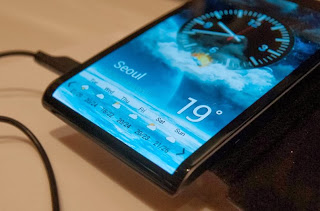The silliest of questions I suspect it appears to many, but take no offence if you get to find out eventually that your knowledge of the meaning of a smartphone is laughable and/or way off the mark.
Amongst a few things I suspect might be running through your mind is the question ; "I hope my phone is truly a Smartphone?".
Enough of the assumptions, we should lay them to rest with this piece. Am afraid some would be discarding their (should be) smartphone after this exposition. Am so sorry you thought you had a smartphone.
Without much Ado, what makes a phone smart? What makes a smartphone different from a regular cell phone. I believe you would love to know.
Now what is a Smartphone?
A smartphone is a mobile phone with highly advanced features. A typical smartphone has a high-resolution touch screen display, WiFi connectivity, Web browsing capabilities, and the ability to accept sophisticated applications. The majority of these devices run on any of these popular mobile operating systems: Android, Symbian, iOS, BlackBerry OS and Windows Mobile.
A Smartphone is a device that lets you make telephone calls, but also adds features that you might find on a personal digital assistant or a computer. A Smartphone also offers the ability to send and receive e-mail and edit Office documents, for example.
Smartphones are handheld devices that integrates mobile phone capabilities with the more common features of a handheld computer or PDA. A Smartphone allows a user to store information, e-mail, install programs, along with using a mobile phone in one device. For example a Smartphone could be a mobile phone with some PDA functions integrated into the device, or vice versa.
To put in other definitions ;
A Smartphone, or smart phone, is a mobile phone built on a mobile operating system, with more advanced computing capability and connectivity than a feature phone. The first Smartphone’s combined the functions of a personal digital assistant (PDA), including email functionality, with a mobile phone. Smartphone are Cell phone/Mobile phone that allow you access features you ordinarily can only access on a computer, like receiving or sending of e-mail, typing or editing Microsoft documents, read e-books etc. They allow us to do other tasks beyond making/receiving calls. #PuttingSimply
A smartphone is expected to have a more powerful CPU, more storage space, more RAM, greater connectivity options and larger screen than a regular cell phone.
High-end smartphones now run on processors with high processing speeds coupled with low power consumptions. That means, they’ll allow you to play 3D games, browse the Web, update your Facebook account, call, and text much longer than you used to.
In addition to the features mentioned earlier, smartphones are also equipped with innovative sensors like accelerometers or even gyrscopes. Accelerometers are responsible for displaying screens in portrait and landscape mode, while gyroscopes make it possible for games to support motion-based navigation.
The earliest touch screen smartphones used resistive touchscreen displays, which required the use of slender pointing objects known as styli (or stylus in singular form). Most of the later models however, like the iPhone and most Android phones, employ capacitive displays, which feature multi-touch finger gestures.
So, have you a smartphone or just something similar?
Are you stunned that less fancied phone of yours is actually 'smarter'?
Hopefully, this has been helpful, even if to a person.
Leave your reactions as comments bellow.
Credits:Techopedia Webopedia |





